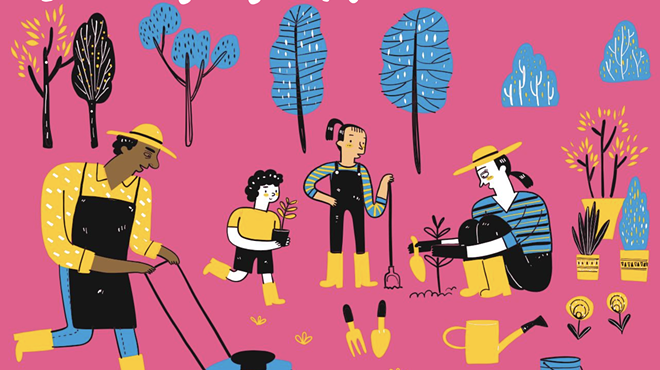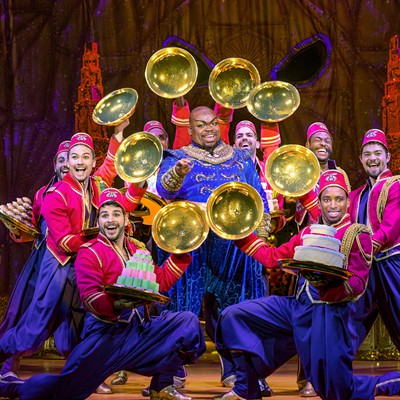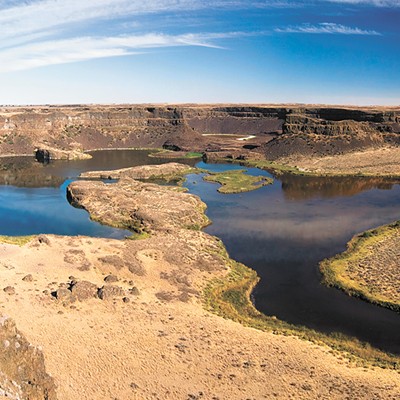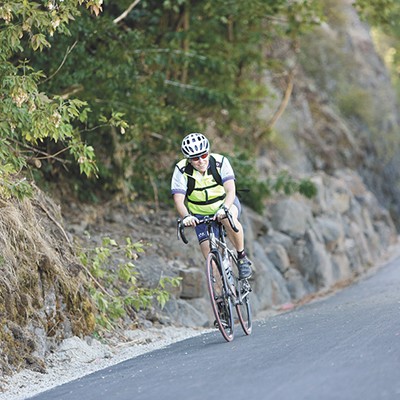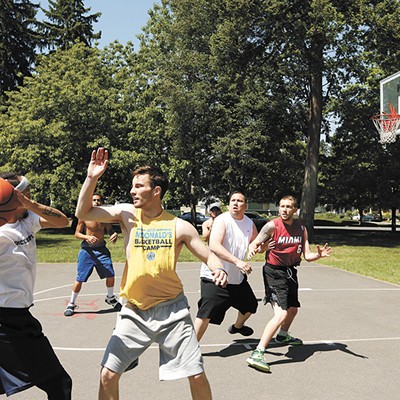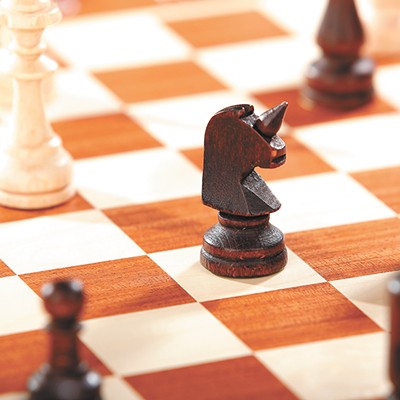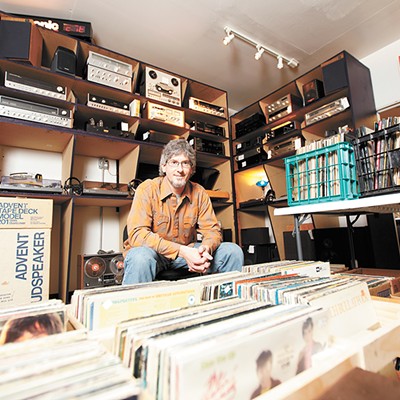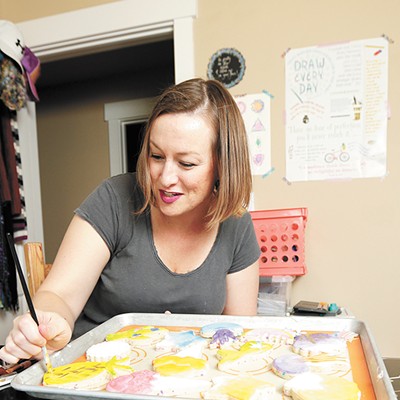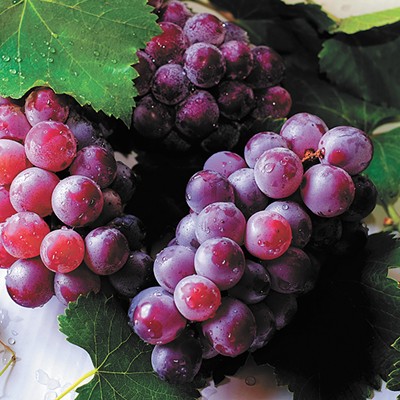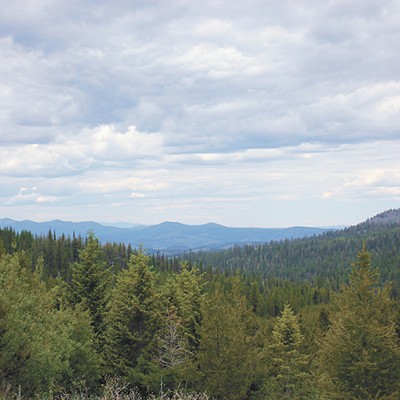HIT THE BOOKS
Despite the endless closures and cancellations, books can still whisk away homebound readers of all ages on new adventures. Youth Services librarian Katie Rickard with Spokane Public Libraries says they have adapted many summer reading programs for online access with hopes of introducing additional activities to keep kids connected.
"We're just trying to figure out what would be fun," she says. "We're trying to keep kids busy and engaged."
Local authors Chris Crutcher, Kelly Milner Halls and Kenn Nesbitt will lead online discussions and presentations in July. The library will also host an array of concerts, craft workshops, puppet shows and magicians this summer. You can register and find more information at spokanelibrary.org.
The library has also launched virtual storytimes and book clubs for kids to share what they are reading with others and hear about new books. Rickard says librarians will help lead discussions and offer recommendations for further reading.
To counter "virtual fatigue," Rickard says the library also plans to put together take-home activity kits with origami, paper airplanes or other hands-on projects. The library is also working with the parks department to create a Story Walk where visitors can follow the pages of a book through a public park.
Older kids can log in to library resources to access an education edition of Minecraft, stream movies via Kanopy or get instructions to make their own escape room at home.
Rickard says the popular Lilac City Live! program also hopes to host a Lilac City Kids talent show later in the summer.
"We're trying our best with what's available," she says. "[And] this community has a lot to offer."
PLAY PALEONTOLOGIST
At the Clarkia Fossil Bowl, located about 40 minutes south of Saint Maries, Idaho, visitors can hunt for their own fossils in an ancient riverbed. Don't expect to unearth any massive dinosaur bones, but the preserved imprints of prehistoric plants can be found throughout the site (next to an off-road raceway). For $10 a person, you can rediscover a world buried millions of years ago, and take your fossils home with you. Plenty of fossils can be found in the shallow layers of rock. Some light hand tools can help. Wear rugged clothes and pack plenty of water on hot days.
MAKER CAMPS
If your budding scientists prefer STEM over stegosaurus, Gizmo-CDA, a nonprofit makerspace in Coeur d'Alene, has a number of workshops and day camps scheduled for this summer. Some five-day camps will explore coding or robots. Others will cover graphic design or woodworking skills. Organizers say camps will be held outdoors in small groups whenever possible. Programs are open to kids as young as 7, but many require children to be at least 12. Camps cost about $200 for the week. Visit gizmo-cda.org.
MARCH TO YOUR OWN DRUM
Kids love to make noise. Maybe use this summer to start them on a musical instrument. Ethan Johnson, an elementary school music teacher in Pullman, says you can introduce young kids to music through movement first. Let them dance along. Play stop-and-go games to teach them about rhythm and timing. You can help kids develop a critical ear by asking about what instruments they can hear or what parts they like best.
"You're only limited by your own imagination," he says. "It's all about giving kids the skills to talk about music and why they like it or don't like it."
Children as young as 5 can start on easier instruments like ukulele, bells or tapping with drumsticks. If you've been looking to pick up an instrument, Johnson says parents can play along, too, modeling the practice and perseverance needed to learn a new skill. "It makes it seem a little bit more doable," he says.
Older kids can experiment with other affordable instruments like harmonicas, tin whistles, hand drums or melodicas. Few instruments require batteries or plug-ins, so you can take them camping or send kids to practice outside when the "music" gets too loud.

BURST SOME BUBBLES
Everybody likes bubbles. They're bright and magical, but more importantly cheap. You can make your own at home with easy-to-find ingredients. Start with one part dish soap and three parts water. You'll want to add a couple teaspoons of sugar for every one-quarter cup of dish soap to help thicken the solution. Stir together gently. You can find more advanced recipes that use glycerine or corn syrup online. A buddy of mine swears by using denatured alcohol and guar gum as thickening agents. Experiment with different mixtures and get your bubble on.
GET MOVING
When kids start getting stir crazy, a home obstacle course can challenge them to move in new ways. Obviously the complexity of your course depends on your child and what you have on hand, but having some goal-oriented movement can help keep kids engaged. Sidewalk chalk can be used to scribble different hurdles, dances or puzzles on driveways to get kids zigging and zagging. (You can put masking tape on the floor if you're indoors.) Kids also love to balance, so you can use 4-by-4s, rocks or a slackline to create different crossings or mazes. I've also found a rope suspended from a tree or roof beam can be used to swing between platforms. Free pallets can be used to make ladders or other obstacles. Online you can find backyard ninja warrior sets that include monkey bars, rings, cargo nets and other obstacles along a suspended line. But I'd start with the chalk.
GIVE BACK
The United Way's Volunteer Spokane online portal can connect kids with a local volunteer organization to sew masks, help with a local farmers market, work at a food bank or help with outdoor planting and trail work. For younger kids, the ongoing Hand Drawings for Heroes program lets kids share photos of their artwork with local health care workers, grocery store workers, teachers and first responders. Visit volunteerspokane.org.
BACKYARD BIOLOGY
With its usual outdoor science camps canceled, the University of Idaho's McCall Outdoor Science School has launched weekly online challenges to help kids study the natural wonders of their own backyard. Program coordinator Beth Kochevar says lesson prompts will guide students through soil science, plant ecology, bird songs, wildfire impacts and other natural phenomena. Students can collect and share their data through a joint app to see what other regional students have observed.
"We're hopefully teaching them that they can learn any place," she says. "It's kind of an experiment for us."
Most lessons require little more than a notepad and a willingness to pay close attention to the natural details all around you. Kochevar says the school will continue sharing new lesson prompts through the summer. Visit moss.uidaho.edu/adventure. ♦





